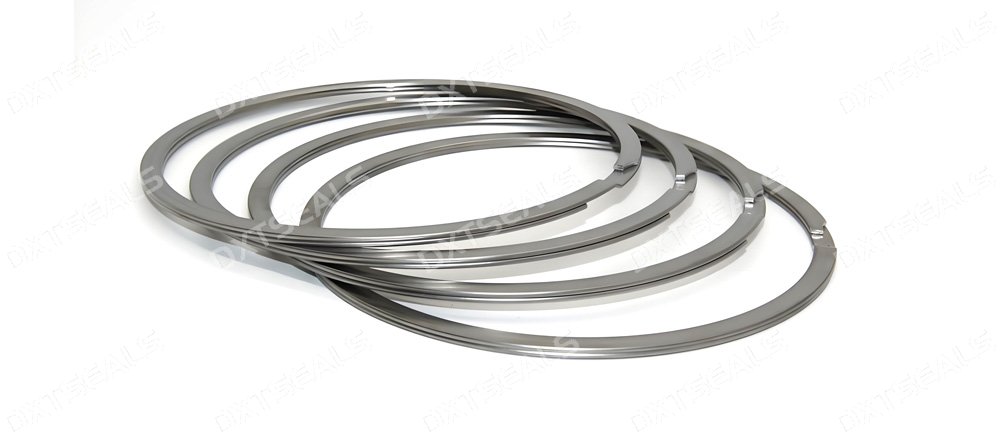Introduction
Vacuum systems, used in various industries like semiconductor manufacturing, aerospace, and research, rely on effective sealing solutions to maintain a consistent vacuum environment. Metal seals are often the go-to choice for these systems due to their superior durability, reliability, and leak-tight performance. In this article, we’ll explore why metal seals are essential for vacuum systems and how they outperform other sealing materials in high-performance applications.
1. What Are Metal Seals and How Do They Work?
Metal seals are sealing components made from various metal alloys, including stainless steel, copper, and other corrosion-resistant materials. Unlike traditional elastomeric seals (such as rubber or silicone), metal seals are designed to compress and deform under pressure, forming a strong, durable barrier that effectively prevents leaks.
In vacuum systems, metal seals are used in critical applications where a high vacuum must be maintained, and any leakage can lead to performance degradation. These seals are commonly used in:
- Flanges
- Valves
- Connectors
- Pumps
By utilizing the compressibility and plasticity of metals, these seals ensure a tight, long-lasting seal in high-vacuum environments.
2. Key Advantages of Metal Seals in Vacuum Systems
✅ Superior Leak Resistance
One of the most significant advantages of using metal seals in vacuum systems is their superior leak resistance. Due to their solid construction and ability to deform and create a tight seal, metal seals are incredibly effective at preventing leaks, even in extremely low-pressure or high-vacuum environments. In critical systems, where even the smallest leak can compromise performance, metal seals provide a reliable, leak-proof solution.
✅ High Temperature and Pressure Tolerance
Metal seals excel in high-temperature and high-pressure environments, where other sealing materials like rubber or elastomers may fail. Metals such as stainless steel or monel can withstand elevated temperatures without degrading, ensuring long-term performance. They are also highly resistant to thermal cycling, making them ideal for vacuum systems exposed to rapid temperature fluctuations. This durability in extreme conditions ensures that metal seals remain effective, even in demanding industrial applications.
✅ Chemical Resistance
In many vacuum systems, components are exposed to aggressive chemicals or corrosive substances. Metal seals, particularly those made from corrosion-resistant alloys, offer excellent chemical resistance, ensuring that the seal remains intact and performs well, even in harsh environments. This makes metal seals a preferred choice in industries such as semiconductors, aerospace, and chemical processing, where chemical exposure is common.
✅ Long Lifespan and Durability
One of the most compelling reasons to choose metal seals for vacuum systems is their long lifespan. Unlike elastomeric seals, which can wear down, degrade, or lose elasticity over time, metal seals maintain their structural integrity for an extended period. Their durability minimizes the need for frequent maintenance or replacement, making them an economical choice in the long run. This longevity makes them ideal for high-precision applications where reliability is critical.
✅ Ability to Seal Large Gaps
Metal seals are particularly effective in sealing large gaps or uneven surfaces, which is often a challenge for traditional rubber or elastomer seals. In vacuum systems, where components may have complex geometries or slight surface irregularities, metal seals can be precisely engineered to fill gaps, ensuring a perfect seal. This versatility makes them suitable for a wide range of applications where standard sealing solutions might fail.
3. Applications of Metal Seals in Vacuum Systems
✅ Semiconductor Manufacturing
In the semiconductor industry, vacuum systems play a crucial role in processes like thin film deposition and etching. Metal seals provide the high-performance sealing required to maintain ultra-low vacuum levels during these processes. Their resistance to contamination and high-temperature stability is essential in ensuring the precision and reliability of semiconductor manufacturing equipment.
✅ Aerospace and Space Exploration
Vacuum systems in aerospace applications, such as vacuum chambers used in satellite testing or spacecraft components, rely on metal seals for their ability to maintain a vacuum in extreme environments. The seals must endure the harsh conditions of space, including intense radiation, temperature extremes, and exposure to various gasses. Metal seals’ resistance to these challenges makes them a critical component in aerospace technology.
✅ Research Laboratories
In research applications, particularly those in high-energy physics or material science, vacuum systems must achieve ultra-high vacuum (UHV) or extreme vacuum levels. Metal seals are used to ensure that experiments are conducted in an environment free from contamination, and that any potential leaks are eliminated, ensuring reliable and reproducible results.
4. Why Metal Seals Are the Preferred Choice for Vacuum Systems
✅ Long-Term Cost Efficiency
Although metal seals may have a higher initial cost compared to elastomeric seals, their long-term cost efficiency is a key benefit. Due to their durability and resistance to wear, metal seals require less frequent replacement, reducing the overall maintenance costs of vacuum systems. Their extended lifespan and minimal need for servicing make them a more economical choice in the long run.
✅ Customization Options
Metal seals can be customized to fit the specific needs of a vacuum system, ensuring an optimal fit and performance. Whether it’s for a specific pressure rating, temperature tolerance, or material compatibility, metal seals can be tailored to meet precise requirements. This flexibility makes them highly suitable for specialized applications in various industries.
5. Conclusion
Metal seals offer numerous advantages when it comes to maintaining the integrity of vacuum systems. Their superior leak resistance, high-temperature tolerance, chemical resistance, and long lifespan make them the ideal choice for high-performance vacuum applications in industries like semiconductor manufacturing, aerospace, and scientific research.
If you're looking to improve the efficiency and reliability of your vacuum system, metal seals should be at the top of your list. With their exceptional performance and ability to handle extreme conditions, they are the go-to sealing solution for demanding applications.

